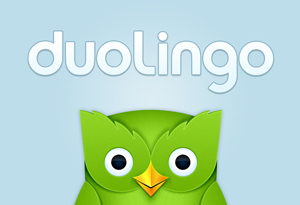Do you try to speak the language whenever you’re abroad?
The last time I was in France, I found myself sitting at a cafe in Paris having a language standoff with the waiter. I wanted to practice my French and he was having none of it. Since both of us were equally stubborn, I continued speaking my broken French and he continued speaking his fluent English. We were quite the pair.
As I get older, I find myself more enthusiastic about trying out a different language while traveling. It’s not always pretty. Sometimes I feel like a fool. Sometimes words leave me tongue tied and my sentance structure is on par with a 3 year old. Sometimes all I can say is “hello” and “thank you.” But I think it’s always worth it.
Sometimes trying to speak a new language can feel like this
Attempting to speak a new language shows you’re trying and that you care enough to make the attempt, no matter how ugly it sounds to the other person. That kind of openness helps you connect in new ways with the people you meet.
For as many times I’ve had a bad experience trying to speak a different language, I’ve had many more wonderful experiences. Those moments are just as precious--or funny--and memorable as the beautiful sites I’ve seen or meals I’ve eaten.
Which brings me to Duolingo. If you haven’t heard of it, it’s a free online language-learning program. You can use it in your browser on a phone/tablet app, which makes it easy to practice whenever and wherever. Right now there are 9 languages available:
- Spanish
- French
- German
- Italian
- Portuguese
- Dutch (Netherlands)
- Irish
- Danish
- Swedish.
I absolutely love it. It’s great if you’re a total beginner or someone looking to brush up on rusty skills because the site makes sure you're being challenged and working to your level. It’s fun, easy to use, and engaging. It feels more like a game thank studying. Plus, you're not just memorizing, you're writing real sentences, translating, and speaking so learn how to put together real world sentences. The best (or is it worst?) part is that if you aren’t consistent, you’ll lose skill strength and Duolingo makes you go back to re-visit them. Like a lot of things, it takes consistent practice but it also pays off.
I practiced for 20-30 minutes daily before our last trip to France and I noticed a major difference in how much I could read, speak, and understand from the year before.
Now is a great time to start before any big trips next summer!


